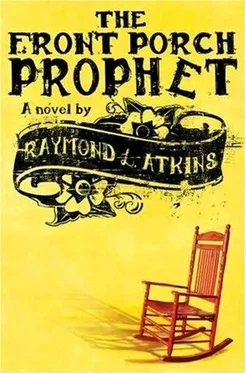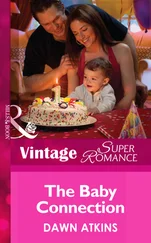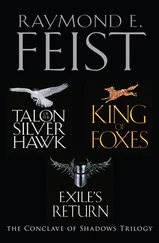“But I’m fired, right?”
“You’re fired,” Howard agreed. He picked up a pad and pen and wrote down a name and a phone number. “This man is a friend of mine who runs the little mill over at Dogtown. Call him later today. I’ll have it arranged so you can start work tonight.”
He handed the slip of paper over to A.J., who took it because he didn’t know what else to do. It seemed Howard was going to great lengths to soften the blow, and he appreciated it, but the fact loomed large that the man who should have been axed had just been promoted to day shift. It was a poor excuse for justice, a sort of anti-justice that A.J. did not understand. He was tender in years and had not yet learned all he needed to know.
There were several postscripts to the episode. Maggie went home and over coffee told her mama, Jane Austen, of the events that had transpired. Janey was sympathetic and told her daughter not to let it worry her. She also told Maggie to be sure not to mention the problem to her father, Emmett, because they both knew how he would react. Ironically, Emmett agreed that his wife had given their daughter some sound advice. He was sitting in the next room working on an ingrown toenail with his pocketknife when he overheard the conversation. Without a word, he put his knife in his pocket, slipped on his shoe, and took a drive to the mill. Right was right and wrong was wrong, and Emmett had a history of explaining the difference between the two to people like Howard Hoyt.
Emmett Callahan had no tolerance for shades of grey, and he didn’t like anyone harrying his girls, as A.J. would find out presently when he began to court Maggie. In later years, A.J. amused himself by imagining the look that must have been on Howard Hoyt’s face when he saw Emmett filling the door frame, looking as hard as a bar of iron. The two of them conferred privately, and although neither ever spoke of the conversation, the phrase Come back down here with my shotgun and blow away everything wearing a damn necktie was overheard by Howard’s secretary, Mrs. Hicks.
Maggie was surprised to learn upon her arrival at work that night that the job she desired had been awarded to her. When she later discovered what had led to her promotion, however, she confronted her father in anger and told him in no uncertain terms that when she wanted his help, she would certainly ask for it. Emmett listened in silence. Women were a mystery to him.
Clyde Cordele did not fare well on first shift. A smarter man would have acknowledged a near miss and vowed to change. But this sanity was beyond Clyde, and he never skipped a beat as he slammed into the day crew like a tidal wave. Ironically, Clyde’s ultimate downfall occurred over a set of circumstances eerily similar to those that had gotten him sent to day shift in the first place. Karma will find a way.
Not long after his arrival on his new shift, Clyde became enamored of Beatrice Beaufort England, a weaver otherwise known as Betty B. Although she in no way encouraged Clyde, he took every opportunity to present his attentions and to make a general nuisance of himself. This situation continued for some few weeks until the fateful day of Clyde’s professional and very nearly personal demise arrived.
On that day, Clyde finally became completely overwhelmed with desire and actually reached out and touched one of Betty B.’s breasts. No one would argue the fact that they were dandies, a point that formed the core of Clyde’s defense. But dandies or not, his urge constituted sexual harassment even by the extremely liberal standards of the textile industry of the day.
Betty B.’s husband, Rocky, was the day shift forklift driver, and he was not known for his tolerance where his wife’s breasts were concerned. When Howard Hoyt and Security arrived, Clyde was bound head to foot in a length of winding and was standing on a pallet raised ten feet in the air by Rocky’s forklift. There was a strip of heavy denim looped around Clyde’s neck, the other end of which was tied to a ceiling joist directly above. Rocky had decided to hang the scoundrel, which was better than he deserved, and Clyde had not handled this reversal of fortune well. Luckily, cooler heads prevailed, although it appeared at the time that Howard left Clyde standing on tiptoe somewhat longer than was absolutely necessary before he was cut down and fired. Rocky had to go to the regional hospital for an evaluation but was pronounced sane. He was allowed to come back to work with a write-up in his file and a stiff warning about hanging management.
As for A.J., he had enjoyed his fill of textiles and did not take advantage of the employment opportunity that Howard Hoyt had offered. Eugene urged A.J. to come help him run a little import business he had started, and A.J. was intrigued at first. But ultimately he took a pass when he discovered that Eugene’s fledgling enterprise consisted of high-speed runs in the Lover to Denver, where the old Chrysler was loaded with as many cases of Coors beer as it would hold for transport back to Cherokee County for resale at three times its purchase price.
“You’re missing the boat,” Eugene said in an exasperated tone when A.J. informed him that he appreciated the offer, but he felt he wasn’t cut out for the occupation. Instead, he hired on dragging slabs at a little sawmill down in the valley. The work was unpleasant but not intellectually demanding, so he had plenty of time to think. And what he thought about was Maggie.
Don’t investigate my demise too thoroughly.
– Excerpt of posthumous letter from Eugene Purdue to Red Arnold, Cherokee County Sheriff
IT WAS LATE AFTERNOON ON THE FOLLOWING SATurday when A.J. rolled into the clearing for his second visit with Eugene. He parked Johnny Mack’s old bulldozer next to Eugene’s Jeep, which had deteriorated appreciably during the previous week. He left his bat on the dozer and climbed down. He and Rufus had already enjoyed their reunion for the day, and it had gone poorly for Rufus. The big canine left the encounter visibly shaken, as if the sight of A.J. banging the Louisville Slugger against the track of the Cat while yelling It’s showtime! had upset him. A.J. had not intended to offend his foe’s sensibilities and almost certainly would have veered away before impact, but Rufus hightailed it before A.J. had the opportunity to explain. For a large dog, Rufus was extremely fleet of paw when the need was upon him.
It had taken most of the day to reclaim the road, and A.J. was tired. He walked slowly to the porch where Eugene sat, quietly rocking. The scene appeared much as it had the week before, with one notable exception. The Navy Colt lay on the cable spool with its barrel split and flared. The proud old gun’s Jeep, tree, and Fox shooting days were over. They had come to an end as all things eventually must, saddening A.J. in a way he could not readily explain. He sat down heavily next to Eugene, who was busy loading his replacement weapon of choice, a twelve-gauge pump shotgun that looked vaguely familiar.
“What did you do to Rufus?” Eugene asked conversationally. “He came tearing through here awhile ago like he was on fire.” He raised the shotgun and sighted down the barrel. “Pull,” he said. Then he shot the Jeep.
“Rufus doesn’t like the bulldozer,” A.J. explained, reaching for a beer in the cooler on the floor. “I may need to make Johnny Mack an offer on it.”
“Pull,” Eugene said, again shooting his faithful vehicle. “You need to quit scaring my dog like that. He might get skittish, and I like a dog to have plenty of spirit.”
“No problem. He’s loaded with spirit.” A.J. took a sip of his cold beer. “What happened to the Colt?”
Читать дальше












